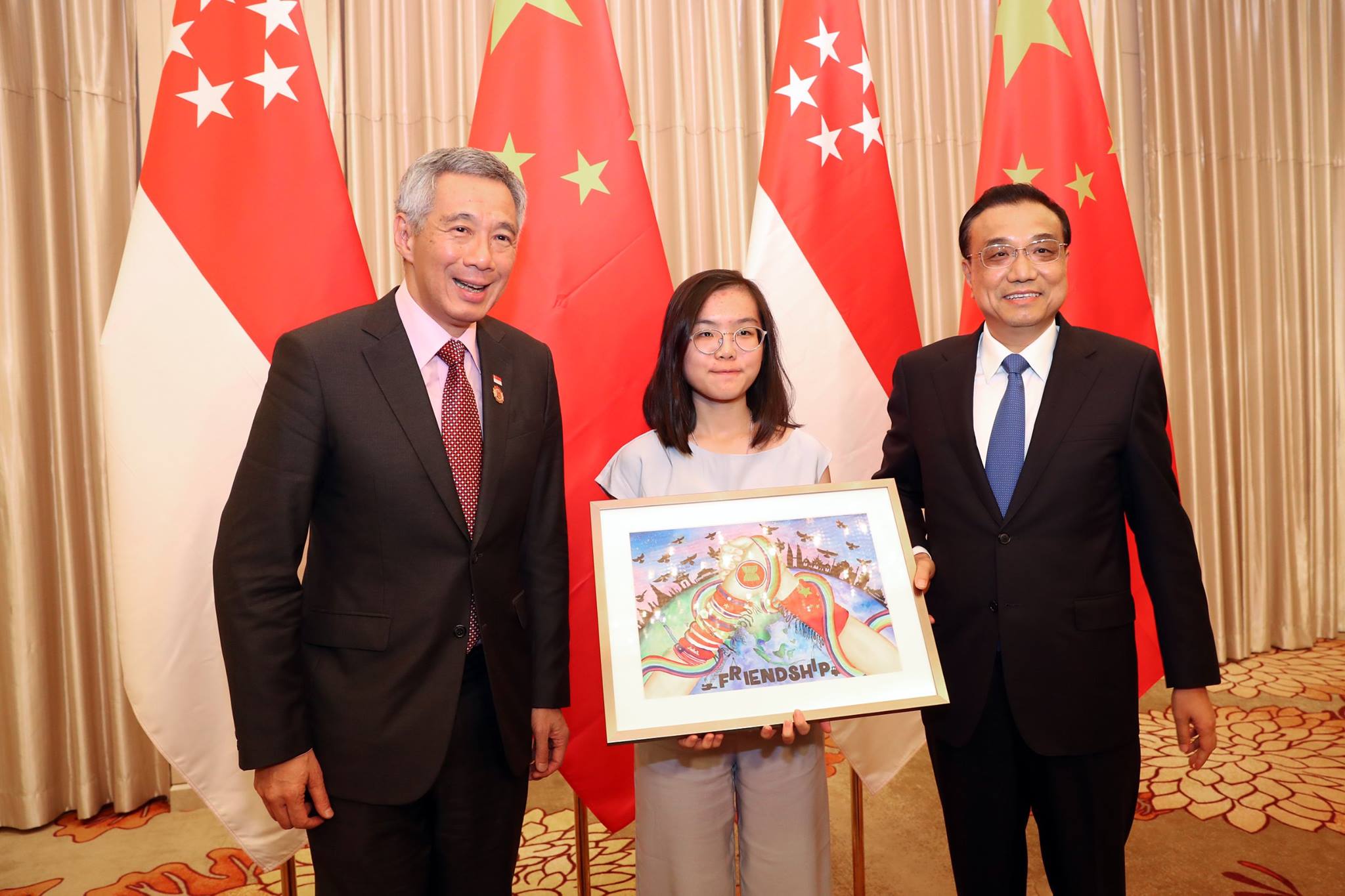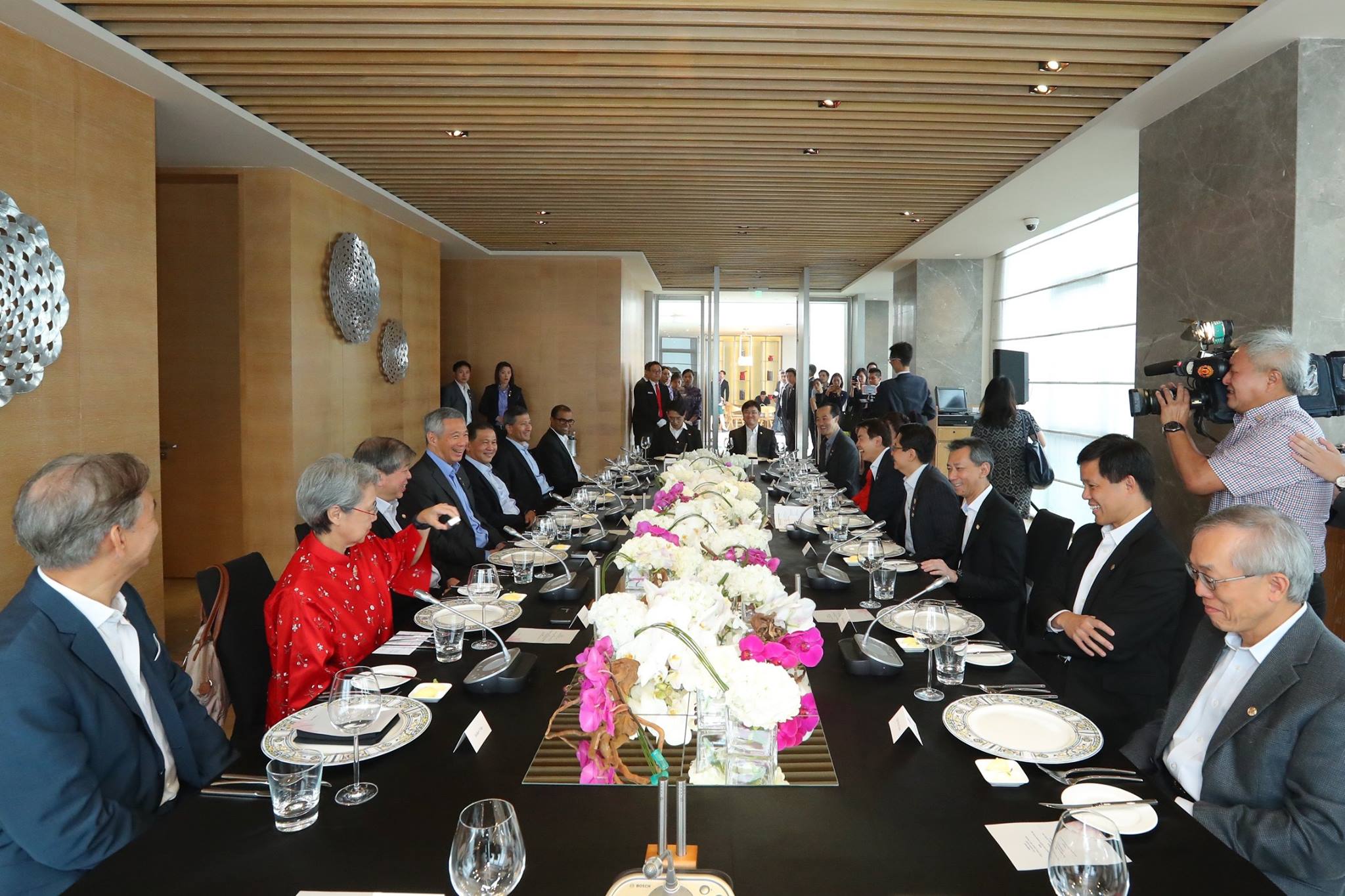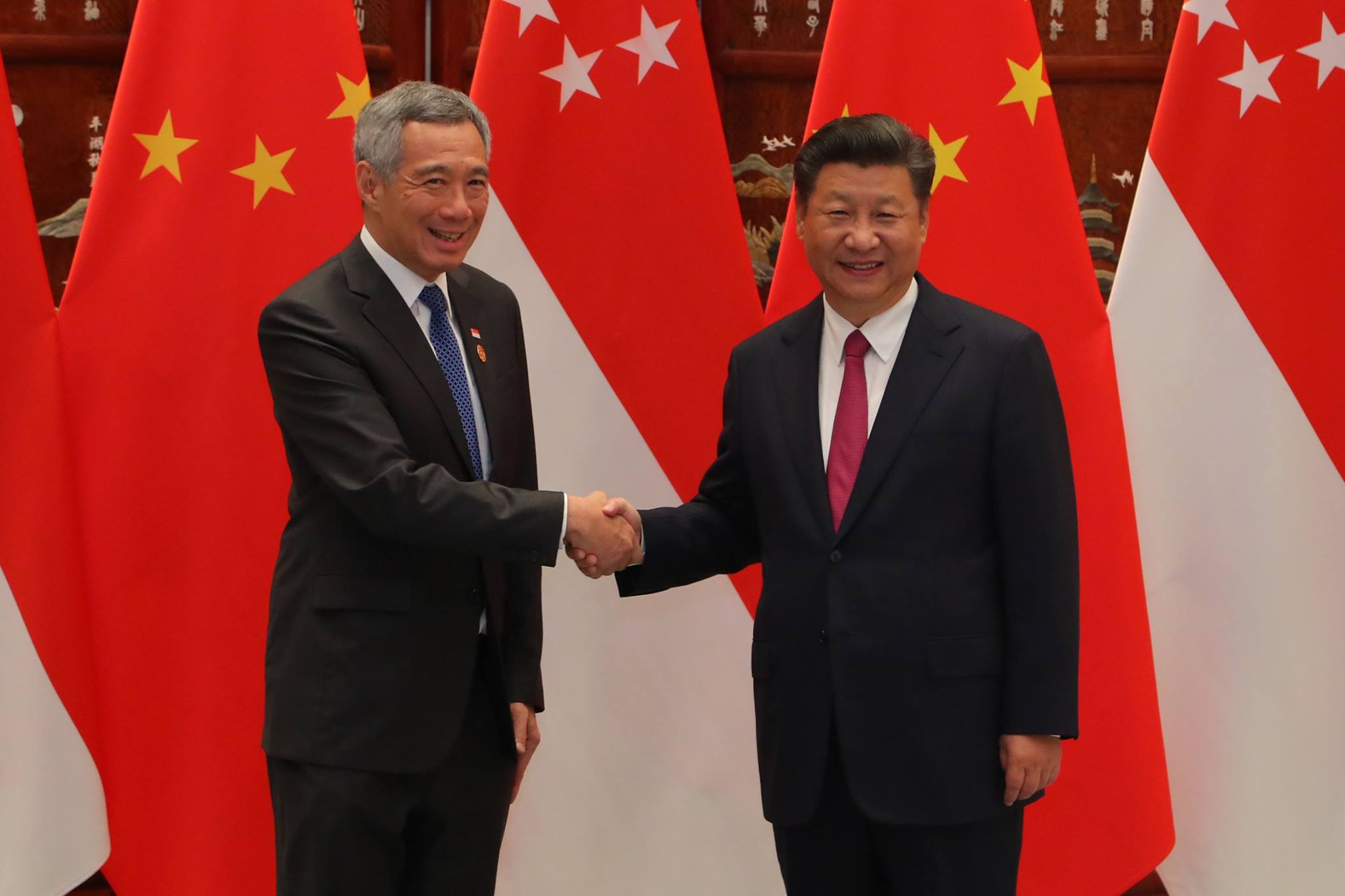It appears that China is pretty peeved at Singapore for its position on the South China Sea.
Over the past week, the editor-in-chief of nationalistic Chinese tabloid and Chinese government mouthpiece Global Times engaged in a war of words with Singapore's ambassador to China, with the tabloid criticising Singapore for its biased stance against China on the South China Sea. Stanley Loh, Singapore’s Ambassador, rejected the accusations by Global Times, issuing two open letters to its editor-in-chief.
Subsequently, Professor Jin Yinan, a director at People's Liberation Army (PLA)'s National Defence University, criticised Singapore on China National Radio last Thursday, accusing Singapore of actively pushing to make the South China Sea issue an international affair.
Here are a few things that may have gotten Singaporeans a bit worried.
1. Jin has been China's representative to the annual Shangri-La Dialogue (SLD) held in Singapore for the past two years, so he appears to speak for the Chinese Government. Moreover, this was carried on state-owned China national radio. In other words, his criticisms may be state sanctioned.
2. Jin was also directly questioning the legitimacy of the SLD security forum, which was jointly organised by the Singapore government and a British think tank. Jin accused Singapore of playing a key role in making China's South China Sea disputes the top of the forum's agenda.
3. Moreover, Jin criticised the late Lee Kuan Yew and said that the late LKY "had lost Beijing’s respect".
So is it fair to say that Singapore is biased in its handling of the South China Sea disputes?
Singapore's stance on the South China Sea is best articulated by Prime Minister Lee Hsien Loong during his National Day Rally speech this year.
"What is Singapore's interest and stand? We do not have any claims of our own in the South China Sea...We have no claims of our own. We do not take sides on other claims. China, Philippines, the other claimants. But in other ways, we do have a lot at stake and three things matter to us, international law, freedom of navigation and a united ASEAN.
Upholding international law and the peaceful settlement of disputes, is a vital interest for a small country like Singapore... However, in reality, big powers do not always act like that. Big powers can insist on their own interests and often do. They do not submit to adjudication by international tribunals, they may not comply with their rulings and China is not the only country to do this and nor is this the first time something like this has happened. Nevertheless, Singapore must support and strive for a rules-based international order. We have to depend on words and treaties. They mean everything to us. We cannot afford to have international relations work on the basis that might is right. If rules do not matter, then small countries like Singapore have no chance of survival.
Our second interest in the South China Sea is freedom of navigation...We have two vital sea lanes of communication, two arteries. One through the South China Sea, the other, through the Straits of Malacca...It is important to us that disputes in the South China Sea do not affect freedom of navigation or overflight by ships or aircraft.
Thirdly, Singapore needs a united and effective ASEAN. With five million people, Singapore’s voice internationally, counts for not much. But collectively, ASEAN with more than 600 million people, it can make itself heard better. This is provided ASEAN is united. On the South China Sea issue, ASEAN finds it very hard to take a common stand because the members have different interests...But the trouble is if ASEAN cannot deal with a major issue at its doorstep affecting its members, in the long run, nobody will take ASEAN seriously and that will be very bad for all of the members of ASEAN, and for Singapore, too.
So, on the South China Sea, we have got our own stand, principled, consistent; different from China’s, different from the Philippines or America. Other countries will persuade us to side with them, one side or the other, and we have to choose our own place to stand, what is in our interest, calculate it, choose the spot, stand firm, we cannot succumb to pressure...
Singapore has a reputation to protect, that we have our own independent, carefully-thought-out stand. We cooperate with other countries but we make our own calculations, and that is what makes us credible, consistent, reliable, valuable to others, to ASEAN partners, to the powers – America, China Europe. It has taken us a long time to build up this reputation and we have to be very careful to maintain it. (Our emphasis in bold) National Day Rally 2016 "
And here are three observations that reveal that China is not very angry with Singapore, yet:
1. PM Lee visited China last month. He also recently met up with both Chinese President Xi Jinping and Chinese Premier Li Keqiang.
According to PMO statement, PM Lee made a working visit in September to Chongqing Municipality and Zhejiang Province to attend the G20 Leaders’ Summit at the invitation of President Xi.
In Hangzhou, PM Lee had a bilateral meeting with President Xi on Sep 2, and PM Lee commented that he "had a good discussion with President Xi on our multifaceted cooperation with China".
PM Lee also had a meeting with Premier Li a few days later (September 7) during the 28th ASEAN Summit, and he "congratulated Premier Li on China’s successful hosting of the G20 meeting".
 Source: Lee Hsien Loong Facebook
Source: Lee Hsien Loong Facebook
2. Singapore continues to have major government-to-government projects with China.
 Source: Lee Hsien Loong Facebook.
Source: Lee Hsien Loong Facebook.
To put things in perspective, Singapore's relationship with China goes beyond just the South China Sea issue.
Many Singaporeans have heard of the Suzhou Industrial Park and the Tianjin Eco-City.
What many Singaporeans may not know is that Singapore has embarked on the third government-to-government project in Chongqing since November 2015.
Known as the Chongqing Connectivity Initiative (CCI), the project will focus on developing financial services, aviation and logistics, and information technology in Chongqing.
PM Lee visited Chongqing and met with the key decision-makers last month, adding that CCI can be a testbed for new policies and ideas.
3. If you think that bilateral relations are bad between Singapore and China, compare the current situation with what happened in 2004.
Then Deputy Prime Minister (DPM) Lee visited Taiwan in July 2004 before he took over Goh Chok Tong as the PM a month later.
As a result of Lee's visit, China's central bank chief canceled a trip to Singapore to attend a central bankers' gathering and more than 120 mainland officials called off plans to study at Nanyang Technological University.
The Chinese Foreign Ministry spokeswoman said that the visit to Taiwan has severely violated Singapore's commitment to the one-China policy and added that "such a move will produce serious effects towards bilateral relations and co-operation, and the Singapore side should be responsible for all the damage".
So things are not really that bad now.
For Singaporeans with business interests in China, we will leave you with some words from PM Lee:
"Sometimes, if you read the foreign media, including the PRC media, you will find articles criticizing Singapore for not siding more with them and I know some Singaporeans are concerned about these criticisms because they have foreign friends. PRC friends, business partners, academic colleagues, personal contacts. They may tell you any tension between Singapore and China will affect your business, affect your collaboration. I understand these concerns. We would like business and collaboration to continue, too, to flourish between Singapore and China and Singapore and other countries because these are arrangements which benefit both sides. If they are disrupted, both sides lose. But the Government has to take a national point of view, decide what is in Singapore's overall interests. We want good relations with other countries if it is at all possible, but we must also be prepared for ups and downs from time to time.
National Day Rally 2016"
So yeah, the government has to take a national point of view and decide what is in Singapore's overall interests.
Because, maybe, just maybe, the Chinese media is scaring the businessmen in Singapore to pressure our government to be less neutral and more pro-China.
So things should be okay if Singapore continues to be neutral, principled and consistent in its position on the South China Sea disputes; and as long as PM Lee doesn't visit Taiwan again, I guess.
Top photo from Lee Hsien Loong Facebook.
If you like what you read, follow us on Facebook and Twitter to get the latest updates.
If you like what you read, follow us on Facebook, Instagram, Twitter and Telegram to get the latest updates.
